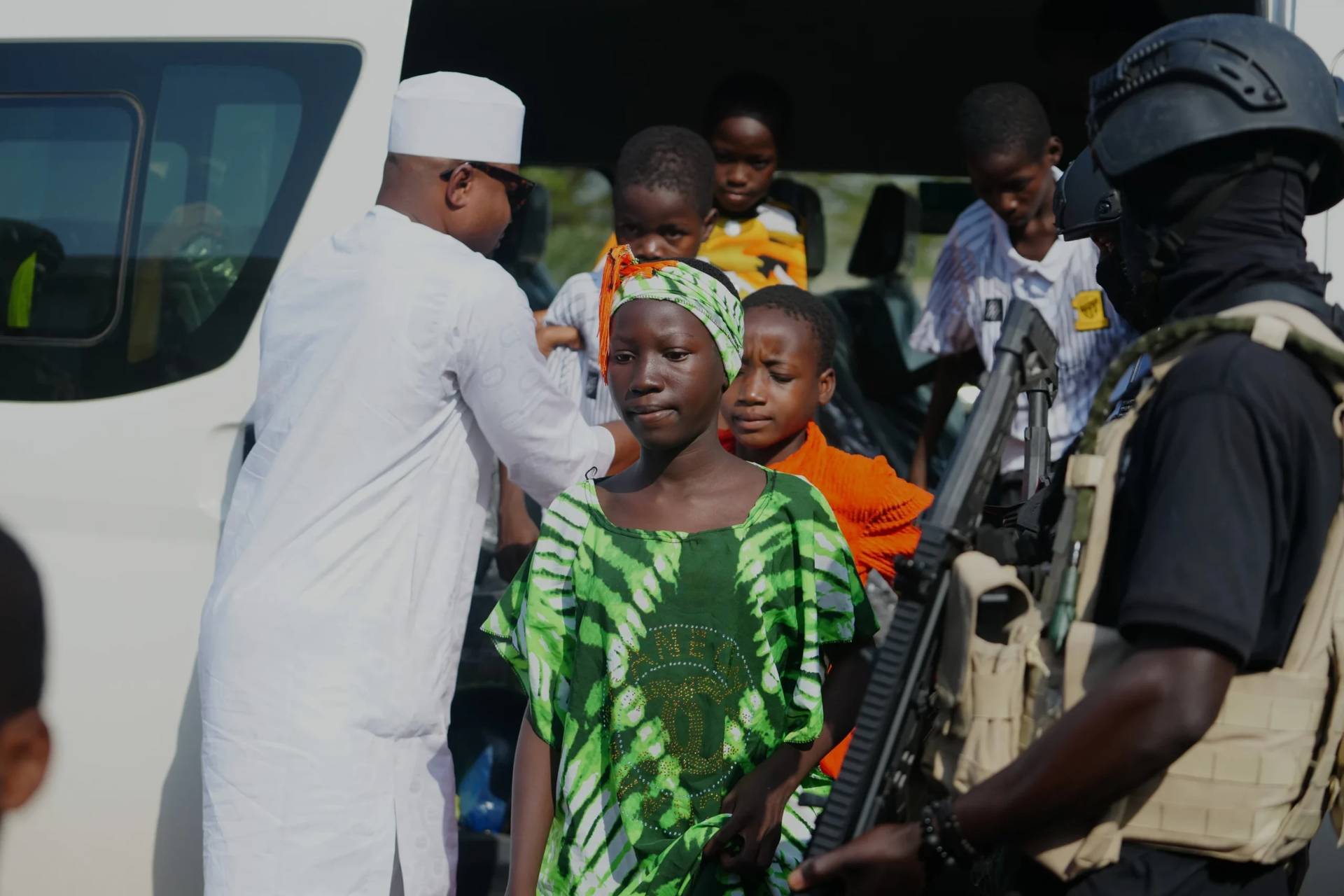NAIROBI, Kenya — Thousands packed Nyayo Stadium Feb. 11 for the interdenominational funeral service for former Kenyan President Daniel arap Moi.
But Moi’s death Feb. 4 continued to draw mixed reactions, with his admirers praising him as a statesman who kept Kenya peaceful and united. His critics described him as a dictator who presided over massive corruption while torturing his people.
“I think with Moi, there are still difficulties with how we view him. Many of us feel although he did some good things, a lot of other bad things happened,” Father Joachim Omollo Ouko, an Apostle of Jesus priest in the Archdiocese of Kisumu, told Catholic News Service.
Moi, who ruled Kenya from 1978 to 2002, was to get a full state funeral with a 19-gun salute. From Feb. 8-10, his body lay in state in the parliament buildings; at least 200,000 people visited the grounds to see his remains. He was to be buried Feb. 12 at his home in Nakuru County, about 125 miles northwest of Nairobi.
Moi angered Catholic officials when his men targeted bishops and priests who challenged increasing human rights abuses, corruption and assassinations under his rule.
In August 2000, U.S. Mill Hill Father John Kaiser died under unclear circumstances. The priest, who had spoken out against deadly tribal clashes in the Rift Valley region, was found dead on a roadside on the Naivasha-Nakuru highway with a bullet wound in the back of his head.
Kenyan police and the FBI ruled the killing a suicide, but the Kenyan bishops disputed the findings and pointed to flaws in the investigation. They said Kaiser had been killed to silence the voice of reason.
In 1990, Anglican Bishop Alexander Kipsang arap Muge died in a mysterious road accident. The bishop had clashed with the government over his campaign for reforms in Moi’s government.
At the same time, some people recalled how Moi’s government set up secret torture chambers in the basement of Nyayo House, a skyscraper in Nairobi that now houses the immigration department. Thousands of political activists, scholars, students and ordinary citizens were detained without trial in the water-filled chambers, with some being denied food and water for days.
“I was one of the victims, but he was also forgiving. I also forgave him, and we made our peace,” said Raila Odinga, an influential opposition leader who was detained in the cells.
In a tribute after his death, Archbishop Philip Anyolo, chairman of the Kenya Conference of Catholic Bishops, thanked God for the gift of Moi and said he had worked hard from a humble beginning to lead Kenya for many years.
“As we mourn with fellow Kenyans, we also remember the life of a man who believed in God and manifested this with actions,” the archbishop said.
At the Feb. 11 funeral service, South Sudan President Salva Kiir said Moi was the hero of his country’s peace. Moi was instrumental in brokering the peace agreement that gave birth to South Sudan.
“South Sudan is the product of his work. It will remain his legacy,” said Kiir.
The service was led by the evangelical group, Africa Inland Church.
“On Christian values, Moi was very keen on forgiveness. He wanted everyone to forgive another person,” retired AIC Bishop Cyrus Yego said in his sermon.
In 2004, Moi asked Kenyans to forgive him, saying he had forgiven those who wronged him when he ruled.
Crux is dedicated to smart, wired and independent reporting on the Vatican and worldwide Catholic Church. That kind of reporting doesn’t come cheap, and we need your support. You can help Crux by giving a small amount monthly, or with a onetime gift. Please remember, Crux is a for-profit organization, so contributions are not tax-deductible.
















